The DIY Website Dilemma: Why Cutting Corners Can Cost You More in the Long Run
In today’s digital-first world, the internet is the marketplace, the showroom, and the customer service desk—all rolled into one. For Millennials, Gen Z, and even Gen X entrepreneurs, it feels natural to jump into a “do it yourself” mindset. After all, this is the era of YouTube tutorials, IKEA furniture, and TikTok hacks. The culture of “I can do it myself” has given people the confidence to take on just about anything—including building their own websites.
It’s easy to see why. Popular DIY website platforms like Wix, Squarespace, Shopify, WordPress.com, and GoDaddy Website Builder promise sleek templates, drag-and-drop features, and affordable subscription models. Their marketing messages are sharp: “Build a professional website in an afternoon.” “Start selling online today.” “No coding skills required.” For startups on a tight budget or small businesses trying to stretch every dollar, these platforms look like the golden ticket.
And to be fair, they have their benefits:
-
Affordability: A monthly subscription is cheaper—at least upfront—than hiring a web designer.
-
Speed: You can launch a website in days, sometimes hours.
-
Control: You get hands-on experience managing and updating your site.
-
Customization (to an extent): Templates make your site look modern without needing to know HTML.
So it’s fair to ask: Why hire someone else to build your website when you can do it yourself?
The Flip Side of DIY Websites
The truth is, what looks like a shortcut can sometimes turn into a long detour. That inexpensive monthly plan? It often comes with hidden costs. That sleek template? It might look identical to 1,000 other sites in your industry. And that promise of “easy-to-use”? Well, it doesn’t always hold true once you start integrating payment systems, SEO strategies, or custom functions.
But the bigger questions are the ones most business owners don’t realize until it’s too late:
-
What happens if the platform crashes during your busiest sales week?
-
Who do you call when your checkout isn’t working, and your customers are leaving frustrated?
-
Do you know what you’re legally required to have on your website? (Think privacy policies, ADA accessibility compliance, GDPR rules if you have international customers, terms and conditions, etc.)
-
How many hours are you willing to spend on the phone or chat with AI support, waiting for a solution?
This is where the DIY dream collides with business reality. Your website isn’t just a digital business card—it’s the backbone of your company’s online presence. Lost sales, broken features, or compliance violations can cost you more than you ever saved by “doing it yourself.”
 Websites Are Investments, Not Expenses
Websites Are Investments, Not Expenses
Think of your website the way you’d think about a physical storefront. Would you build your own building from scratch without an architect? Would you wire your own electricity without a licensed electrician? Some might, but most would recognize that the risk outweighs the savings.
Your website is no different. It’s part of your long-term business investment. It should be:
-
Strategically designed to attract, engage, and convert your ideal customers.
-
Secure and compliant to protect your business from fines and lawsuits.
-
Reliable and supported so that when something breaks (and it will), you have a human being at the end of the phone who knows your business—not a generic AI chatbot reading from a script.
-
Scalable and future-proofed so it grows with you, instead of holding you back.
At Pilgrim Consulting & Design, we’ve worked with countless businesses who started out DIY, only to discover they needed more than a template. They needed a partner—someone to understand their vision, their challenges, and their goals, and to translate that into a digital space that works 24/7.
The Hidden Costs of DIY
Here’s what most entrepreneurs don’t factor into the DIY model:
-
Time: Every hour you spend trying to figure out how to change a font or fix a mobile glitch is an hour you’re not spending on sales, customer service, or innovation.
-
Support: DIY platforms are notorious for tiered customer service. Translation: unless you’re paying top-dollar, you’re often stuck with AI bots or long waits. That means your lost sales could stack up while you’re on hold.
-
Compliance: This is huge. Accessibility lawsuits have been on the rise. Privacy regulations are tightening worldwide. A DIY website builder won’t stop you from making legal mistakes—and ignorance won’t protect you.
-
Design Limitations: Your site should reflect your brand, not just a template. Too often, DIY sites look “cookie-cutter,” making it hard to stand out in competitive markets.
-
Scalability: Many DIY platforms have limits. As your business grows, you’ll hit walls with features, integrations, and performance. By the time you realize it, migrating to a professional system will cost even more.

A Website Is More Than Just a Website
A business website isn’t just a place people “find you.” It’s your:
-
First impression (you never get another).
-
Sales engine (working while you sleep).
-
Customer service rep (answering FAQs at 2 AM).
-
Marketing hub (integrating with social, email, SEO, and beyond).
Would you really want to entrust all of that to a $19/month subscription?
Why Work with Pilgrim Consulting & Design
We’re not just here to build websites. We’re here to build your business growth strategy. That means:
-
Listening to your vision and translating it into digital design.
-
Being a phone call away when you need help—not an endless ticketing system or AI bot.
-
Making sure you’re legally covered with the right disclosures, privacy policies, and accessibility standards.
-
Designing with strategy so that your site isn’t just pretty, it’s profitable.
-
Future-proofing your business so that as you scale, your website scales with you.
 The Question Every Business Owner Should Ask
The Question Every Business Owner Should Ask
Yes, you can build your own website. But should you?
Your business deserves more than a cookie-cutter solution. It deserves a partner who understands your vision, your customers, and your growth potential. Because at the end of the day, your website isn’t an expense—it’s an investment in your company’s future.
So the next time you’re tempted by a DIY builder, ask yourself: Do I want a template, or do I want a tailored strategy? Do I want AI support, or do I want a human partner who cares about my success? Do I want to save a few dollars today, or build long-term value tomorrow?
At Pilgrim Consulting & Design, we’re here to make sure your digital foundation is as strong as your dreams. Let’s build something that lasts.
Your Questions Answered: DIY vs Professional Web Design
We know the decision between building your own website and hiring a professional isn’t always easy—especially with so many DIY platforms making it sound simple and cost-effective. To help you make the best choice for your business, we’ve gathered the most common questions people ask about DIY websites versus professional web design. Here’s what you need to know before making your investment.
1. Why should I hire a professional web designer when DIY platforms are available?
DIY platforms like Wix, Squarespace, and Shopify are great for beginners, but they don’t always cover legal requirements, SEO optimization, or long-term growth. A professional ensures your site is built as a true business investment, not just a placeholder.
2. What are the risks of using a DIY website builder?
Risks include limited customization, poor SEO performance, hidden costs, downtime if the platform crashes, and hours wasted dealing with AI-driven support instead of human help.
3. Can a DIY website look as professional as a custom one?
A DIY site can look good with templates, but it often lacks brand uniqueness, advanced functionality, and scalability. A professional site reflects your business identity and grows with your company.
4. What legal requirements might I overlook with a DIY website?
Depending on your industry, you may need privacy policies, ADA compliance, terms of service, cookie consent, and secure payment processing. Missing these can lead to fines or lawsuits.
5. Will a professional web design improve my SEO?
Yes. Professionals optimize your site’s structure, speed, mobile responsiveness, and content so search engines rank you higher—something DIY builders often fail to deliver.
6. What happens if my DIY website platform crashes?
You may face downtime, lost sales, and delayed support. With a professional partner, you have someone to call who can troubleshoot and restore your site quickly.
7. Are DIY websites really cheaper in the long run?
They may seem affordable upfront, but ongoing subscription fees, add-ons, and lost business from poor performance often make them more expensive than hiring a professional.
8. Can I upgrade my DIY website later if my business grows?
Many DIY platforms have limitations. Scaling up often requires a complete rebuild. A professionally built site is designed to grow with your business from the start.
9. How does a website impact my brand credibility?
Your website is often the first impression customers have of your business. A polished, professional site builds trust and authority, while a template-based DIY site can look generic.
10. How does Pilgrim Consulting support clients differently than DIY platforms?
We provide personalized service, business-driven design, SEO strategies, and ongoing support. Instead of automated replies, you get real people who care about your success.
💡 Final Word: The internet is the most favorable place to do business today. But just because the door is open doesn’t mean every path leads to success. Don’t just build a website—build your future.


 The Question Every Business Owner Should Ask
The Question Every Business Owner Should Ask